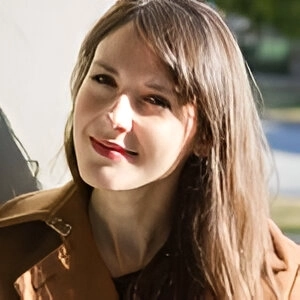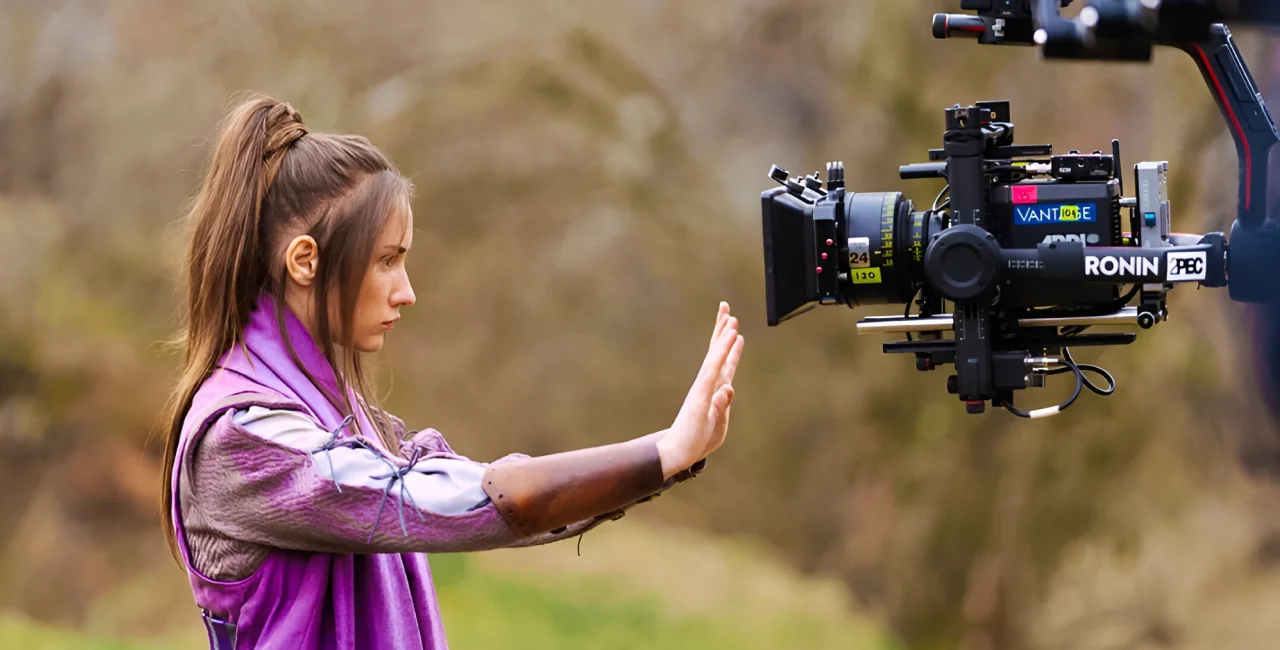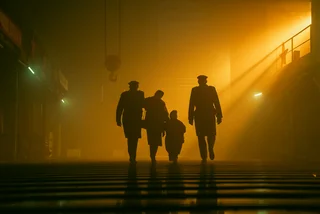One gray afternoon in July, a couple is feuding in the middle of Kampa Park. “Take the keys—go home,” spits a woman to her partner, exasperated, turning on her heel and striding away. Her partner, visibly inebriated, stumbles after her. A crowd looks on in rapt attention.
Above the pair hangs a microphone on a boom pole. An amateur cinematographer watches the action unfold through the viewfinder of her camera. So do a handful of other aspiring filmmakers, students of varying ages and nationalities, huddled together in the grass. The cast and crew repeat the scene—from Derek Cianfrance’s 2010 drama Blue Valentine—again and again, as absorbed in each take as the one before it.
Kampa Park is today’s classroom for the students enrolled in Prague Film Institute’s summer course. But they’re just as likely to be found on a soundstage, or on location in a castle, or even underwater. Now in its second year of accredited instruction, the Film Institute prides itself on giving students from around the world an immersive, hands-on education.
And not just with secondhand scripts. The school is backed by the Czech production company Three Brothers, who specialize in historical films and television programs, and who themselves benefit from each cohort of eager students. The school’s director, Viktor Krištof—whose father and uncles founded Three Brothers—says the seed for the Institute was planted in 2013 when he was contacted by a university in Poland seeking work experience for Erasmus students from Toruń.
“Why not?” Krištof recalls asking himself. “I was saving each and every coin.”
At the time, Three Brothers was in production for the miniseries Cyril and Methodius: Apostles to the Slavs. Krištof, himself an experienced producer, says that he invited several of the students to join his crew at a shoot on location in Archeoskanzen Modrá, an “open-air museum” near Uherské Hradiště that was constructed to resemble a Moravian village from the ninth century. The weather was freezing—windy with flurries of snow—Krištof recalls, yet the students showed up to the site dressed impractically for the task at hand. “We were like, ‘Oh my god, what is going on?’” Krištof said. “They had never seen, they had never touched a set.”
Film Institute graduates are trained never to make such a faux pas. Krištof says students take part in action-scene classes in cooperation with the Czech Stunt Fighters Association, learn to shoot with professional drones, and, for an added fee, receive training in underwater shooting from lauded documentarian Steve Lichtag. Past lecturers include the editor Stephen Rosenblum (whose credits include The Last Samurai and Blood Diamond), Dirk Westerwelt (Deadpool 2, Medieval, Logan) and Michael Havas (Alice and Faust). Students specialize in directing, screenwriting, producing, cinematography, post-production, documentary or acting for film. They walk away from the program with credits on film, television, and music-video crews and with enough of their own work to string together a professional showreel. They also build a portfolio of work that they can submit to international festivals.
There’s a “theoretical” component, too—”of course, there should be something,” Krištof says—taught in the classrooms of the Institute’s HQ in downtown Prague, chock-full of professional film gear. But nearly every course includes a hands-on project. “I say that the whole entire [film] crew is like a living organism,” Krištof says; students need to learn “how every piece of the machine or of the organism works.”
Alumni also walk away with one- or two-year certificates from the UK’s Business and Technology Education Council (BTEC) and have the option to pair their studies with a distance-learning university program to secure a Bachelor’s degree. The formalities are important for students who plan to continue their formal education, Krištof concedes, and they’re important to tuition-paying parents, too.
But when it comes to finding work after graduation, “it doesn't matter if it's FAMU or us or BTEC or, I don't know, Met Film School or whatever.” Practical experience is king. That’s why the institute offers its most high-performing students crew positions on domestic and international projects, such as Medieval, starring Ben Foster and Michael Caine, the most expensive production in Czech history.
“I will get someone who probably didn't study at any big-name school but has got more experience,” Krištof says. “Because that's what I need on set.”
This article was written in association with Prague Film Institute. See our partner content policies here.












 Reading time: 3 minutes
Reading time: 3 minutes 































